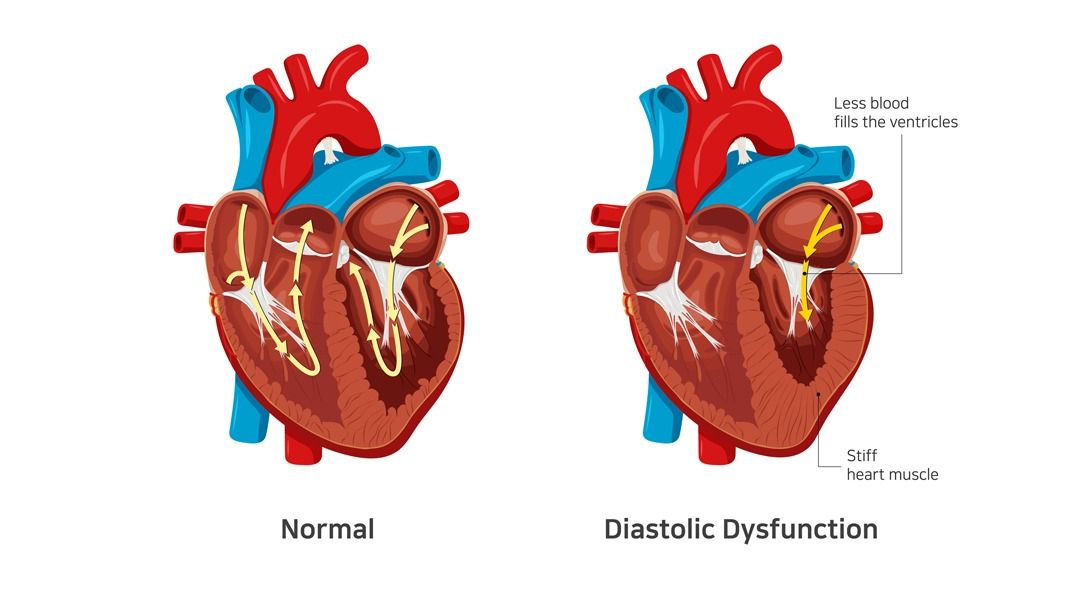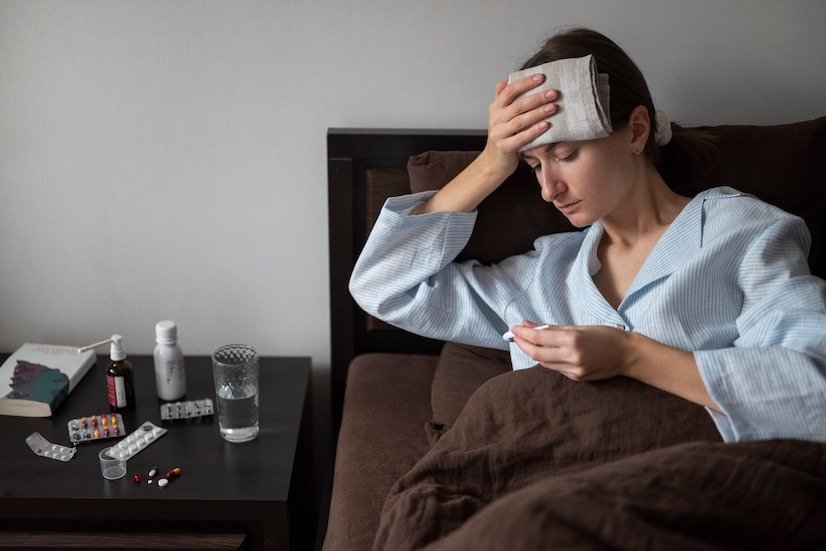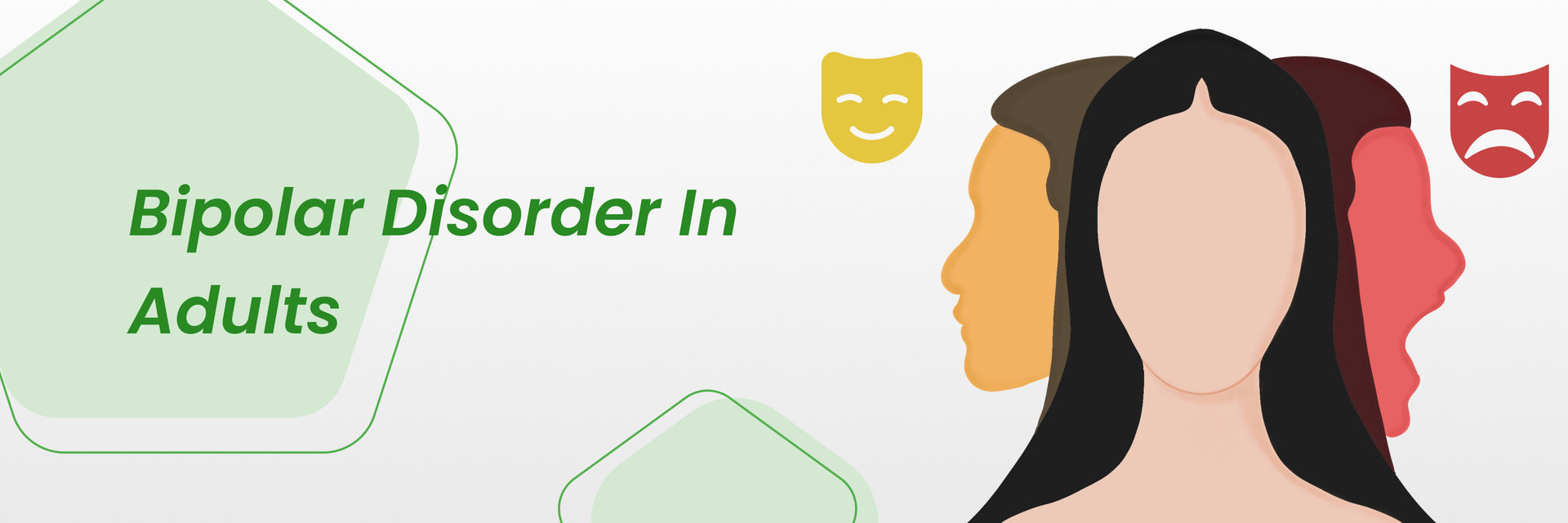Can anxiety cause diastolic dysfunction?
There is very little evidence that indicates the link between anxiety and diastolic dysfunction. In a study by NCBI, it has been found that continuous recurrence of mental stress aggravates the risk of diastolic dysfunction, which is known to be more harmful to women in comparative to men.
Since it is not fully understood, there is no evidence as such for any other psychological disorder causing diastolic dysfunction.
Read ahead to discover the link between these two very unrelated ailments!!

How is anxiety related to diastolic dysfunction?
Our body’s stress response system connects anxiety and diastolic dysfunction. Anxiety leads to the activation of the body's stress response system which releases hormones like cortisol and adrenaline. These hormones can impact the heart functioning. These hormones can increase the heart rate or blood pressure. They also cause changes in blood flow and blood vessel function. All these things can together increase the risk of diastolic dysfunction.
Long-term anxiety can bring about changes in your diet, behavior, and poor sleep habits, smoking, Lack of exercise. These things can indirectly impact the functioning of the heart.
What can be the effects of anxiety on your heart's health? Continue reading to learn more!

How does anxiety affect your diastolic blood pressure?
- The bottom number is the blood pressure reading representing your diastolic blood pressure. Anxiety can affect diastolic blood pressure by increasing that number, which means increasing your diastolic blood pressure. The release of stress hormones during anxiety increases your heart rate and causes your blood pressure to rise.
- When the blood pressure increases, it puts extra strain on your heart and blood vessels. This strain affects the diastolic phase when the heart is relaxing and refilling blood.
- Anxiety is known to cause sleep apnea, which can be a prime cause of increased diastolic blood pressure.
- Many doctors believe in the connection between high blood pressure to obesity as well. They also associate obesity with increased diastolic blood pressure. moderate weight, exercise, and a healthy diet can help in reducing the risk.
- A few studies indicate that alcohol consumption can cause increased diastolic blood pressure. Research studies also associate increased diastolic blood pressure with smoking.
Anxiety can be of many types that give rise to heart problems! Read on to find out.

What kind of anxiety issues can lead to diastolic dysfunction?
There are several types of anxiety issues or disorders that can lead to diastolic dysfunction:
- Generalized anxiety disorder(GAD)- GAD is a kind of anxiety disorder where people tend to worry excessively about general everyday things. They have persistent feelings of fear, tension, and apprehension that can lead to the release of stress hormones. Which can affect the diastolic function of the heart,
- Panic Disorder- This type of anxiety is characterized by sudden and repeated panic attacks. These attacks can cause sudden increases in blood pressure and heart rate. If this continues to happen over time, it may lead to the development of diastolic dysfunction.
- Post-traumatic stress disorder(PTSD)- This is a mental disorder developed after witnessing or experiencing a traumatic event. People with post-traumatic stress disorder can have intense anxiety due to flashbacks and nightmares. This triggers the release of stress hormones leading to the development of diastolic dysfunction.
- Social anxiety disorder- This is a type of disorder where the individual has an intense fear of social situations. They always live in fear of being judged or scrutinized by others. Such people experience physical symptoms like increased heart rate, sweating, and trembling. This can contribute to the development of diastolic dysfunction over time.
Does having anxiety mean you will have diastolic dysfunction? Do not worry, read below to get your answers!

Can everyone have anxiety and diastolic dysfunction at the same time?
The good news is that there is a high chance that you might not have diastolic dysfunction if you have anxiety. Although anxiety and diastolic dysfunction are interlinked it is not necessary that you will have diastolic dysfunction if you have anxiety.
Anxiety can contribute to the development of diastolic dysfunction, but it is not the only reason for causing diastolic dysfunction. There can be many other more prominent factors that may cause diastolic dysfunction.
Diastolic dysfunction can also occur as a result of other factors. These factors include aging, high blood pressure (hypertension), diabetes, obesity, heart disease, and certain medications.
Therefore, not everyone with anxiety will develop diastolic dysfunction, and not everyone with diastolic dysfunction will have anxiety.
If you know the illness, it is very important that you know the treatments as well. Keep reading to find out!

Treatments for diastolic dysfunction caused by anxiety
While treating diastolic dysfunction it is also important that you treat the cause of it. Anxiety and diastolic dysfunction should be treated simultaneously if anxiety is the underlying cause of it.
Here are some possible treatments for diastolic dysfunction caused by anxiety:
- Lifestyle changes - making changes in your lifestyle in order to maintain a healthy weight. Lifestyle changes can include incorporating a healthy and balanced diet, regular exercise, and adequate sleep.
- Medications - Medications like water pills can be taken to reduce the pain caused by diastolic dysfunction. Antidepressants and anxiolytics may be prescribed to help manage anxiety and reduce symptoms of diastolic dysfunction.
- Left Ventricular assist devices (LVAD) - These are implants that help the heart pump blood properly like a healthy heart. In some cases, a heart transplant is required.
- Relaxation techniques- Techniques like meditation, deep breathing, and progressive muscle techniques can be used to reduce anxiety and treat the underlying cause.
- Cognitive-behavioral therapy (CBT): CBT is a form of talk therapy that can help individuals with anxiety learn to manage their symptoms. Through CBT, patients can learn techniques to identify and challenge negative thoughts, reduce physical symptoms of anxiety, and improve coping strategies.
Prevention is always better than cure!! Have a look below to learn how you can prevent anxiety and diastolic dysfunction.

How to prevent anxiety and diastolic dysfunction?
It is always necessary to prevent the root cause to prevent the actual disease. Hence, diastolic dysfunction caused by anxiety can be prevented by treating anxiety. Here are some strategies that might help prevent anxiety:
- Stress management- Perform activities that help in relaxation and reducing stress. Activities like meditation, deep breathing, yoga, and music therapy are some of the ways you can reduce your anxiety.
- Get an adequate amount of sleep- Sleep is an important element of your mental and overall health. Getting enough sleep each night helps in treating anxiety.
- Avoid excessive caffeine and alcohol intake: Both caffeine and alcohol can exacerbate symptoms of anxiety and disrupt sleep, so it is important to consume them in moderation.
- Seek support: Talking to a mental health professional or support group can help individuals learn effective coping strategies and manage anxiety.
References:






